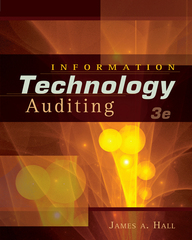Question
Johnny Wellington, an entrepreneur who wants to engage in a short term business project, comes to you for advice. As an expert in capital budgeting,
Johnny Wellington, an entrepreneur who wants to engage in a short term business project, comes to you for advice. As an expert in capital budgeting, Johnny wants you to study the feasibility of the project. In particular, he needs your help to forecast the upcoming cash flows the project is going to require and generate throughout its life. After a few meetings with Johnny and his business partners, you suggest that a pilot run be conducted.
Upon completion of the pilot run at the end of year 1, Johnny and his associates can choose either to continue with the project or terminate it. You forecast that this project will generate cash flows for 4 years after the pilot run if Johnny decides to further proceed.
The pilot run costs $1.0 million to start and if they decide to continue with the project after this pilot run, an additional investment cost amounting to USD1.6 million will be incurred at the end of year 1. The investment cost of USD1.6 million will be fully depreciated on a straight line basis over the life of the project with no scrap value at the end. If the outcome from the pilot run is positive, Johnny can launch the project in full scale at the end of year 1. Revenues, variable costs and fixed costs for years 2 through 5 are estimated to be as follows:
| Years 2-5 | |
| Revenues | USD 7 mil / year |
| Variable Costs | USD 3 mil / year |
| Fixed Costs | USD1.8 mil / year |
However, if the outcome from the pilot run is not encouraging and the team decides to launch the project in full scale, the following estimates are obtained:
| Years 2-5 | |
| Revenues | USD 4.05 mil / year |
| Variable Costs | USD 1.735 mil / year |
| Fixed Costs | USD 1.8 mil / year |
You project that the pilot run has a 60% chance of being successful (i.e. outcome is positive).
To finance the pilot run and the full-scale project, Johnny and his associates decide to use 50% debt and 50% equity. An investor who is Johnnys high school buddy, Barry Lawson, agrees toenter into a special arrangement in which 5-year promissory notes with a face value of USD1000 per note will be sold to Barry at a price of USD694.11 per note. These notes do not make intermediate interest payments. (Note: Consider annual compounding for the promissory notes.)
You gather some market data to work out the equity beta for the project and it is determined to
be 1.50. Further, the market return and T-bill rate are 11 % and 4%, respectively. Assume the
T-bill rate is an appropriate proxy for the risk-free rate of return. Profits and losses from the project will be taxed at a rate of 34%.
Assume the Capital Asset Pricing Model (CAPM) is valid.
Required
a) What is the present value of the cash flows at year 1 if the outcome from the pilot run is negative and the team decides to launch the project in full scale? use 10% as the appropriate discount rate. [Hint: Consider cash flows from year 1 onwards] (3 marks)
b) Should the project be implemented today (i.e. year 0)? Provide relevantly and supporting calculations. Again, use 10% as the appropriate discount rate. Show all steps and give proper explanations. (5 marks)
Step by Step Solution
There are 3 Steps involved in it
Step: 1

Get Instant Access to Expert-Tailored Solutions
See step-by-step solutions with expert insights and AI powered tools for academic success
Step: 2

Step: 3

Ace Your Homework with AI
Get the answers you need in no time with our AI-driven, step-by-step assistance
Get Started


